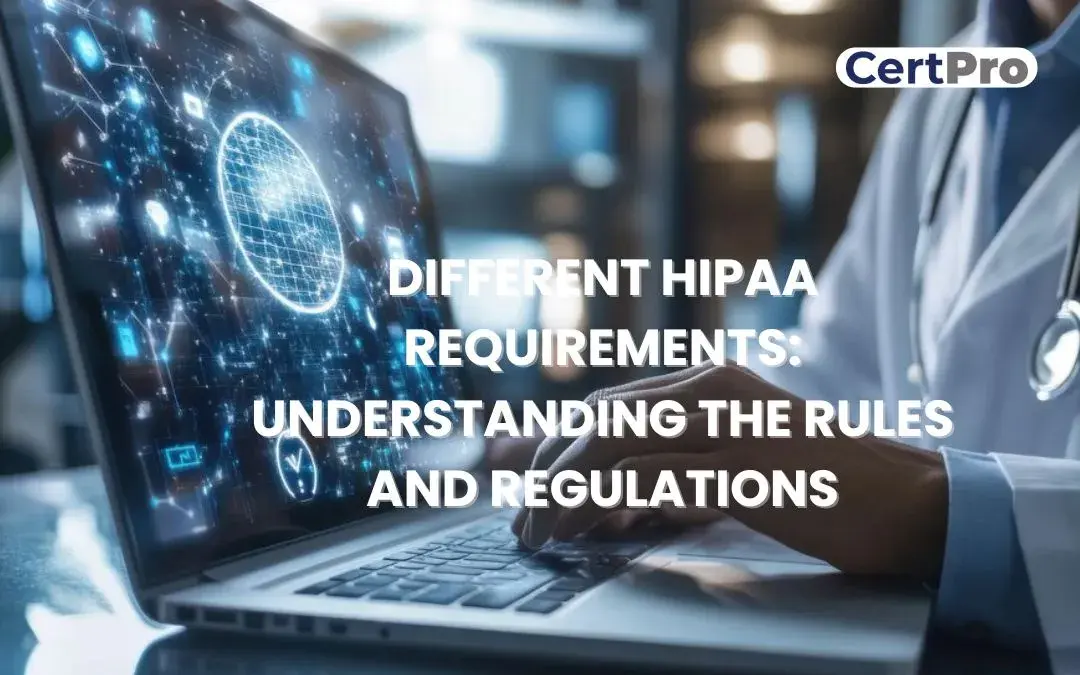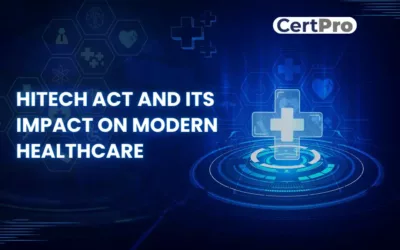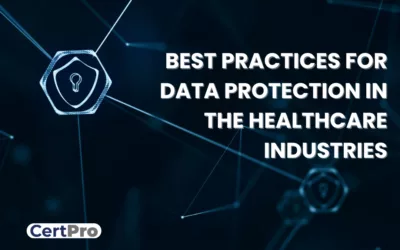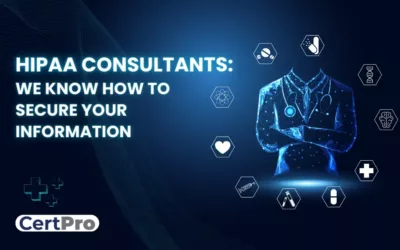With increasing cyberattack trends, organizations must take appropriate measures to secure their lifeblood. Similarly, patient health and financial information need protection in the healthcare sectors. Therefore, the Health Insurance Portability and Accountability Act (HIPAA) was developed to protect the patient’s Protected Health Information (PHI). The regulation is a federal law limited to the healthcare sector. Healthcare organizations need HIPAA IT requirements to protect their clients’ data from hackers. Consequently, companies that violate HIPAA rules can face severe penalties and consequences.
This article will discuss the different types of HIPAA rules and the necessary actions to ensure compliance.
WHAT ARE HIPAA RULES?
HIPAA is a set of guidelines and regulations for safeguarding patient health information. The rule was developed to protect the confidentiality and integrity of health information and offer customers specific rights regarding their data. Now, the question arises: Who is required to follow the HIPAA requirements? The rules apply to private hospitals, clinics, pharmacies, healthcare facilities, health insurance companies, healthcare financing partners, and associates.
Moreover, HIPAA is needed for IT support and billing service providers in the healthcare industry. Simply put, HIPAA ensures the privacy and security of patients who come for treatment.
IMPORTANCE OF FOLLOWING HIPAA RULES
Compliance helps companies dodge cyberattacks and penalties. Let’s discuss the other benefits of HIPAA IT requirements for your organization.
Enhancing Cybersecurity: Compliance will most obviously strengthen your organization’s cybersecurity. In this scenario, HIPAA IT requirements protect ePHI and reduce the chances of data breaches in healthcare facilities. In addition, the rules aim to protect the patient’s personal information from unauthorized access.
Maintaining Privacy: HIPAA compliance indicates that the organization is willing to protect patients’ privacy. It also ensures the confidentiality of patient’s PHI and the transparency of the healthcare organization. Thus, the HIPAA IT requirements boost the organization’s credibility in the competitive business world.
Avoiding penalties: The compliance process ensures data safety and avoids the risk of fines and legal consequences. Thus, you can uphold your business reputation and position yourself in the global market.
Practicing Safety: The culture you build and enforce by setting rules and policies is critical to the success of your healthcare organization. By following the HIPAA IT checklist, which shows that you care about your patients’ PHI, you can create a safe workplace focusing on quality services with compliance.
DIFFERENT TYPES OF HIPAA RULES NOTIFICATION RULE
1. THE HIPAA PRIVACY RULE: The HIPAA privacy rule protects people’s right to privacy. It lays out rules and guidelines to ensure that healthcare workers and related organizations keep patients’ personal health information private and safe. Personal health information includes names, medical data, financial information, ways to reach you, and more. Thus, healthcare professionals must be careful with patients’ information. Patients should also know how their PHI is used and what rights they have regarding their health information.
2. THE HIPAA BREACH NOTIFICATION RULE: Implementation of compliance reduces the risk of potential threats and minimizes the impact of cyberattacks. However, data breaches can occur at any point in time. At that time, the breach notification rule came into effect. The rules instruct the organization to manage the data breach. As per the rules, the organization needs to inform the affected individuals via an official communication channel within 60 days of discovering. If the organization cannot notify the customers due to a lack of patient details, post the incident on the website or other broadcast channels. Similarly, if the incident of data breaches crosses 500, the organization must issue a public notice in local news channels. In the same case, inform the Secretary of Health within 60 days of the discovery.
3. THE HIPAA SECURITY RULE: The privacy rule is about how organizations can use and share data safely. The security rule is about keeping this data safe from unauthorized access. In the HIPAA IT requirements, there are three different kinds of safety measures:
Administrative: It focuses on security policies, processes, and the workforce required to continue HIPAA compliance. Thus, it indicates that employees must follow the implemented security controls to protect ePHI. Therefore, the process involves employee training and active participation in the compliance journey.
Technical: The security rules focus on limiting the access of ePHI from unauthorized use. Therefore, organizations must implement certain policies and controls to monitor the data access process. Organizations can install antivirus, data encryption, and multi-factor authentication in this regard.
Physical: It focuses on restricting the physical facilities where ePHI is stored and managed. Therefore, organizations must implement security policies for managing and handling server rooms, routers, workstations, and computers. In some cases, installing an intrusion detection alarm can be beneficial.
4. THE HIPAA ENFORCEMENT RULE: The HIPAA IT requirements in 2015 to add to the privacy and security rules. There will be harsher civil and criminal punishments for data breaches after this rule goes into effect. It also requires the federal government to report privacy and security breaches. In addition, it also establishes procedures for handling HIPAA violations and penalties accordingly. The rule says that all new HIPAA privacy and security rules should be written into business contracts in the healthcare industry.
5. THE HIPAA IDENTIFIERS RULE: Hackers could pretend to be healthcare workers for a business to access private information about patients. Thus, under the HIPAA identifiers rule, businesses can only share Protected Health Information (PHI) with other legal companies. To follow the rule, each group should have its unique identification number, and each type of service provider has a unique set of identifiers. According to this rule, companies must only share the desired PHI with HIPAA-approved groups.
6. THE OMNIBUS RULE: The Omnibus Rule became law on January 17, 2013, following changes to HIPAA rules. The rule aims to improve the controls that are already in place. This rule widened the definition of business associate to include companies that help your organization with data management, storage, and research. In addition, the rule increases the HIPAA violation penalties. The affected individuals must be informed within 60 days of discovering the incident.
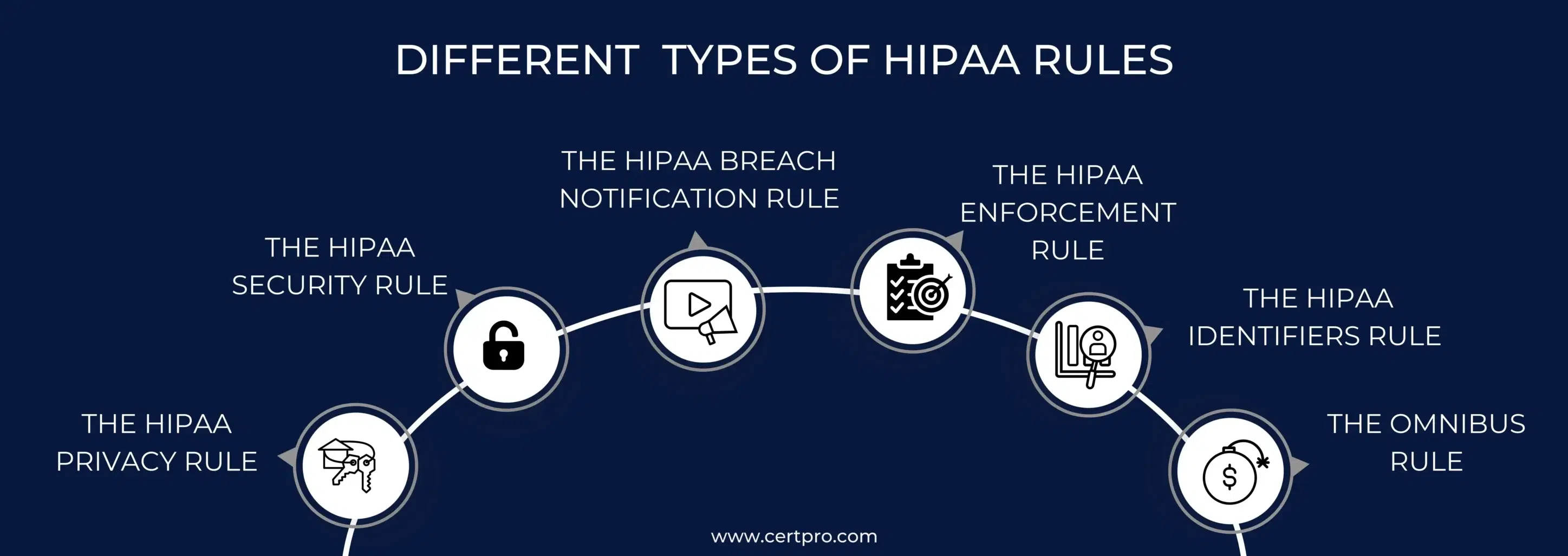
PENALTIES FOR NON-COMPLIANCE WITH HIPAA IT REQUIREMENTS
Non-compliance with HIPAA IT requirements can result in hefty fines and legal consequences. However, the exact amount of penalties depends on the nature and severity of the violation. The concerned authority will check the reason behind the breaches. Is it intentional, negligent, or suspicious activities in the organization? Let’s discuss the two types of penalties for violating HIPAA IT requirements:
Fines: Organizations that fail to comply with HIPAA rules can face civil penalties of approximately $68,000 per violation, depending on the severity of the incident. The fine can also reach a maximum of $1.5 million per year per violation.
Criminal Penalties: In case of severe violations, like neglecting the security alarms and intentionally exposing the patient’s health information, are considered criminal offenses. Therefore, the organization can face legal harassment and the concerned person’s imprisonment.
Thus, you recognize the importance of following the HIPAA IT requirements to protect your organization and you from hefty fines and reputational damages.
BEST PRACTICES FOR HIPAA COMPLIANCE
HIPAA is a common data security practice in healthcare sectors. The rules maintain data hygiene in healthcare facilities and reduce the risk of data breaches. This article discusses the best practices for HIPAA IT requirements in your organization.
Risk Assessment: It is essential for compliance practice and maintaining adherence to the regulation. Therefore, organizations must conduct a risk assessment to identify the process’s vulnerabilities and mitigate potential risks. The compliance process requires an appropriate risk assessment for better functioning. It avoids the risk of non-compliance and instability in the organization. The process requires appointing an external auditor. Therefore, the auditor thoroughly reviews the details of patient data management systems and recognizes potential threats in the existing practices.
Employee Training: Implementing compliance is a vast undertaking that requires active participation from your organization’s employees. Employees play a crucial role in implementing and maintaining compliance practices. Thus, HIPAA IT requirements demand continuous employee training and upgrade programs to mitigate threats. Again, the compliance practice is a complicated process that has changed with time. Therefore, employees must have the latest information regarding the data handling rules. It will prevent data breaches and human errors in the process. Also, it creates a sense of responsibility within the workplace.
Data Protection Policies: Organizations must implement robust policies and controls to secure ePHI. Therefore, antivirus software, access control, data encryption, and effective disposal methods can be applied. These methods help restrict data access and prevent unauthorized access, thus eliminating the risk of data breaches in healthcare facilities. On the other hand, multifactor authentication can be an effective measure of securing the data. Hence, organizations can implement multiple safety measures based on their potential and capabilities. In this regard, expert guidance from CertPro can help you to implement a robust framework for your organization. Collaborate with for more tailored advice and services.
Incident Response Plans: Organizations must have an effective emergency response plan. Data breaches are now common for all industries. However, a robust incident response plan can help organizations overcome crises. Employees must be aware of their role after discovering the incident. In addition, what kind of responses should they avoid, and what practices must they follow at that time? Generally, HIPAA IT requirements signify that the affected individuals must be informed within 60 days of discovering the data. Therefore, organizations must follow the instructions strictly to avoid the consequences.
HIPAA COMPLIANCE JOURNEY WITH CERTPRO
HIPAA IT requirements are comprehensive in nature. Thus, adhering to strict regulations can be daunting and complicated. If you feel stuck with your HIPAA compliance, connect with CertPro. Our HIPAA specialist auditors will help you get out of the hole. Thus, we offer complete services to our clients, help them achieve their goals, and implement the HIPAA IT compliance checklist. Our non-stop support will continue after the certification, as compliance is never-ending. Hence, we are always with you to hold your hand and support your journey. If you wish to connect with us, contact CertPro.com and communicate with our representative for more tailored services.
FAQ
Is it mandatory to follow all HIPAA rules?
The rule is mandatory for healthcare organizations and entities. However, violating any rule can lead to severe fines and penalties.
What is the best way to achieve HIPAA compliance?
For compact auditing, you can seek support and guidance from an expert, making the process straightforward and less complicated.
What is HIPAA’s minimum requirement?
The minimum requirement of HIPAA is to limit unnecessary usage of health data and prevent access to health information.
What does HIPAA not cover?
It applies to healthcare sectors and securing PHI and ePHI. It does not cover employee records, social media credentials, or other things unrelated to patient data.
Is HIPAA only for the US businesses?
No. If your organization handles business internationally and manages data of US citizens, it must be covered by HIPAA. Even Indian organizations working with US patient data must comply with the regulation.

About the Author
ANUPAM SAHA
Anupam Saha, an accomplished Audit Team Leader, possesses expertise in implementing and managing standards across diverse domains. Serving as an ISO 27001 Lead Auditor, Anupam spearheads the establishment and optimization of robust information security frameworks.
HITECH ACT AND ITS IMPACT ON MODERN HEALTHCARE
In 2009, the Health Information Technology for Economic and Clinical Health or HITECH Act was signed to transform the American healthcare industry. The laws worked as a forward-thinking process of changing patient services. In this regard, the Patient Protection and...
BEST PRACTICES FOR DATA PROTECTION IN THE HEALTHCARE INDUSTRIES
In the healthcare sector, safeguarding sensitive information about patients is extremely important. Patient data includes personal details, medical histories, and treatment plans. Therefore, it must be protected and should be confidential. Thus, breaches not only...
HIPAA CONSULTANTS: WE KNOW HOW TO SECURE YOUR INFORMATION
Navigating HIPAA compliance can be complex; therefore, organizations seek advice from HIPAA consultants. These HIPAA experts have specific knowledge. They can help firms to understand the problematic standards of the Healthcare Privacy Act. In 1996, HIPAA was created....

